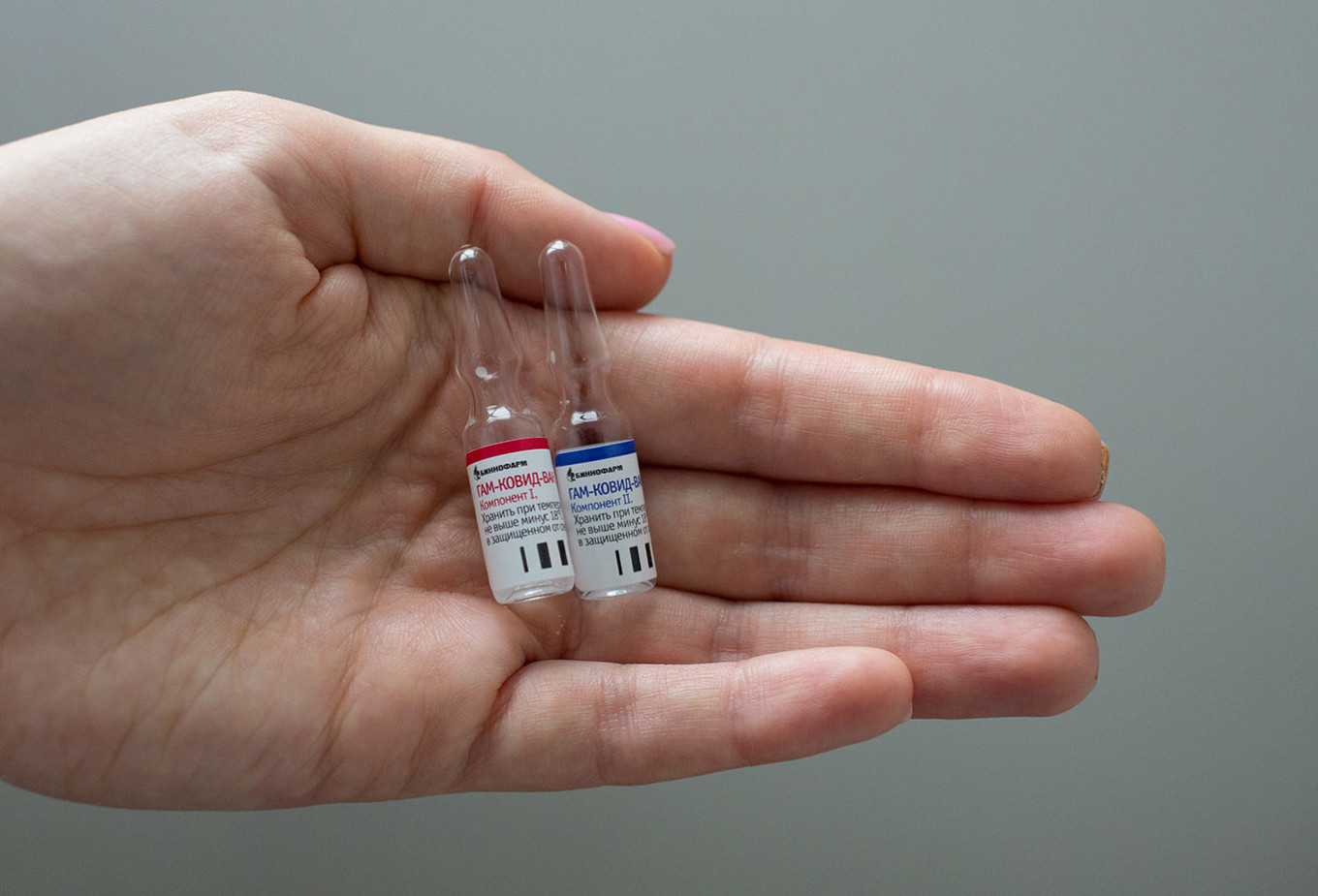
A handout photo shows an employee demonstrating vials with vaccine against the coronavirus disease (COVID-19), developed by the Gamaleya National Research Institute of Epidemiology and Microbiology and the Russian Direct Investment Fund (RDIF), during its production at Binnopharm pharmaceutical company in Zelenograd near Moscow, Russia August 7, 2020. Picture taken August 7, 2020. (REUTERS /The Russian Direct Investment Fund (RDIF)/Handout )
JAKARTA — It is admirable how the Indonesian government has gone the extra mile to secure a COVID-19 vaccine amid a tight race among nations in their efforts to protect their citizens from the pandemic. The overseas trip of State-Owned Enterprises Minister Erick Thohir and Foreign Minister Retno LP Marsudi to China and the United Arab Emirates (UAE) recently gave Indonesia a supply of 300 million doses of a potential COVID-19 vaccine along with other economic and research partnerships until the end of next year. Retno said 20 million to 30 million doses of the potential vaccine would be sent by the end of this year, with 80 million to 130 million doses coming in the first quarter of next year and 210 million doses for the remainder of 2021.
On top of those figures, Indonesian pharmaceutical giant Bio Farma hopes to produce at least 150 million doses of a potential COVID-19 vaccine from China’s Sinovac Biotech in the first quarter of 2021, depending on the success of the phase III tests now underway in Bandung, West Java. Indonesia, like other nations across the world, is desperately seeking a vaccine to protect millions of its people from the life-threatening disease and save its economy from calamity. The impact of the pandemic on the economy is proven to be more devastating than the 1997-1998 financial crisis, as evident in the 5.3 percent contraction of the country’s gross domestic product in the second quarter of this year, just a few months since the first infection case was announced early in March. If the economic doldrums continue, unemployment is predicted to hit 12.7 million next year, according to National Development Planning Ministry (Bappenas) estimates. Millions of others will fall into poverty. The fact that the government is doing what it takes to secure a potential vaccine is, therefore, a noble effort. But this is not a reason to put our minds at ease. The vaccines are still in clinical trials or in the form of commitments. People cannot rely on them as questions are still raised about their effectiveness.
China, Russia and other countries have openly skipped steps in clinical trials to be able to start production. The United States government plans to distribute a COVID-19 vaccine under special emergency use guidelines sometime before the election on Nov. 3, apparently for political motives. With many parts of the scientific process compromised, we can only doubt the safety and efficacy of the vaccines. Prominent infectious disease expert Anthony Fauci has warned of risks in rushing out a vaccine despite the urgent need. “One of the potential dangers if you prematurely let a vaccine out is that it would make it difficult, if not impossible, for the other vaccines to enroll people in their trial,” Fauci told Reuters. The few months before the vaccines are expected to arrive will be crucial. The government should not forget that a major part of slowing down the pandemic is prevention, which involves the strict implementation of health protocols. It cannot continue to promote economic recovery while hoping that everything will get better when a vaccine is finally available.